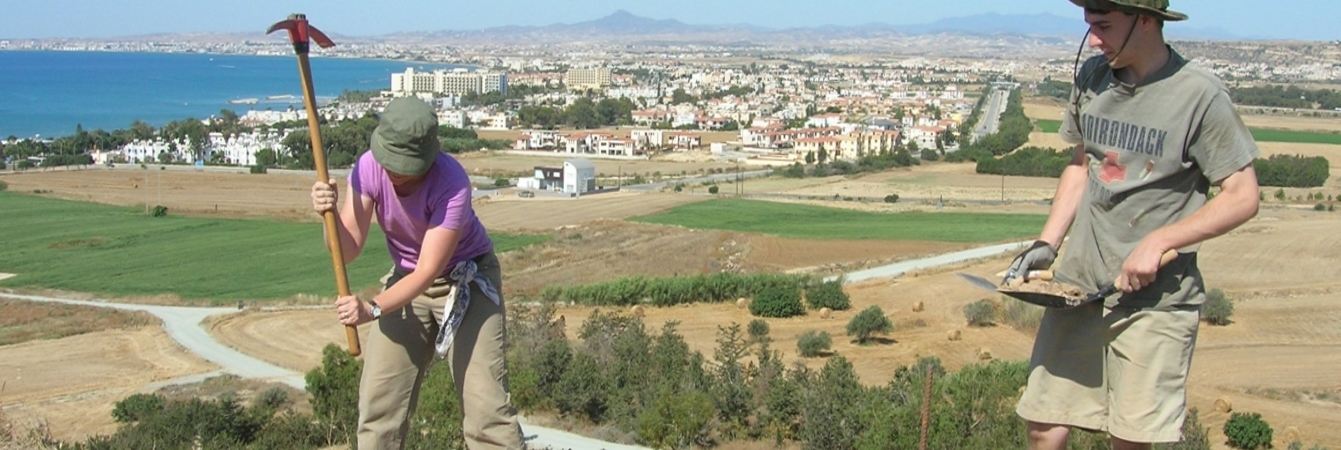| Descriptive Attribute | Value(s) |
|---|---|
| Summary |
Directly under 7111, minus NW most corner of trench, as noted on SU 7111 form. More tumble--many roof tiles Dry sieve Other find bag: 1 glass, 1 charcoal, 5 tile Sand-gravel Loose-soft |
| Date Excavated | 2009-06-05 |
| Min Elevation | 6.93 |
| Max Elevation | 7.31 |
| Description |
This SU has the same sandy, yellowish-brown soil a earlier SUs, though with a slightly smaller clast size. It comes down on a mass of roof tile (10-30cm), in which the soil is very loose and of a fine sandy type (i.e. less gritty/grainy). We find also mortar/plaster frags in the SU, though, and the soil is more consolidated in the areas (soft) and comparable in grittiness to other debris context. Yet given the intermixing of this material it is obvious that we are in the same deposit as earlier SU. Certainly the looseness of the soil around the tiles can be explained by their size [of depositional process], which left gaps in between without dirt and also exposure for 10 years plus after the DOA excavations. The SU also turns up gypsum frags (4-6 cm), layer gypsum plate (10-20cm revetment, paving?) some sandstone (10-15 cm) and one glass object—all more debris/tumble. We traced 7112_f1 into 7110_f1 in this SU and it’s clear that they are bonded and 7110_f1 is part of the wall (7112_f1). Both have fallen gypsum plates pinned (not bonded) to the north face in SU 7113, while several other large gypsum plates (10-20cm) we found laying horizontally beneath these. Presumably when the building collapsed on top of the wall, 2 plates were lodged upright while the others fell flat. Yet the pier is reused, so we must imagine a 2 phase collapse. After a 1st partial collapse, building materials were pillaged and reused, then at an unknown later date (20 or 100 years?) the major collapse of the annex occurred, burying the wall in debris. SU closed when we reach floor of DOA trench—we’ll run an SU along whole northern extent of wall. Bottom Elevations: N: 6.94, C: 6.93, S: 6.93 |
| Munsell | 10YR 5/4 Yellowish Brown |
| Texture | Sandy Clay Loam |
| Consolidation | Coarse-grained Sediment: Loose |
| Stoniness | 5 |
| Dominant Clast | Sand |
| Descriptive Attribute | Value(s) |
|---|---|
|
Creator
Vocabulary: DCMI Metadata Terms (Dublin Core Terms) |
Suggested Citation
David K. Pettegrew, William R. Caraher, R. Scott Moore. (2019) "SU-7113 from Europe/Cyprus/PKAP Survey Area/Koutsopetria/EU-13". In Pyla-Koutsopetria Archaeological Project II: Geophysics and Excavation. David K. Pettegrew, William R. Caraher, R. Scott Moore (Ed). Released: 2019-12-04. Open Context. <https://opencontext.org/subjects/54cd615a-34e4-43cb-92df-3865d8d9f762> ARK (Archive): https://n2t.net/ark:/28722/k2hx1ph3d
Editorial Status
●●●○○Copyright License
To the extent to which copyright applies, this content
carries the above license. Follow the link to understand specific permissions
and requirements.
Required Attribution: Citation and reference of URIs (hyperlinks)




